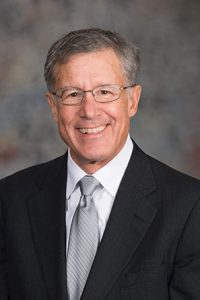Ranked-choice voting considered
The Government, Military and Veterans Affairs Committee heard testimony Feb. 18 on a bill that would end traditional voting in certain elections and instead allow voters to rank candidates.

Under LB125, introduced by Sen. John McCollister of Omaha, voters would note on a ballot their most-preferred candidate, second-most preferred candidate and so on for all candidates. The bill would apply to elections for governor and members of Congress and the state Legislature if at least three candidates are on the ballot.
McCollister said ranked-choice voting would reduce partisanship and give voters confidence that their vote won’t be wasted.
“Ranked-choice voting is a process that will increase voter satisfaction, efficiency and fairness in future state elections,” McCollister said.
Cindy Maxwell-Ostdiek, president of Rank The Vote Nebraska, testified in support of the bill. She said ranked-choice voting discourages negative campaigning and creates more opportunity for women and non-white candidates.
“We want better choices. We want better candidates, better ideas,” Maxwell-Ostdiek said.
Kimberly Jones of Bellevue also supported LB125. Ranked-choice voting enables voters to avoid “choosing the lesser of two evils” and encourages voting for third-party candidates, she said.
“Voters should be able to vote for candidates they support not just vote against candidates they oppose,” Jones said.
Lancaster County Election Commissioner David Shively testified in opposition to the bill. Changing voting procedures could lead to voter confusion, he said, and would delay election results and double the cost of printing ballots.
“We spend an enormous amount of time testing the ballots to go through the machines to make sure all the ovals are accurately counted,” Shively said. “This would [add] some additional time.”
The committee took no immediate action on the bill.

